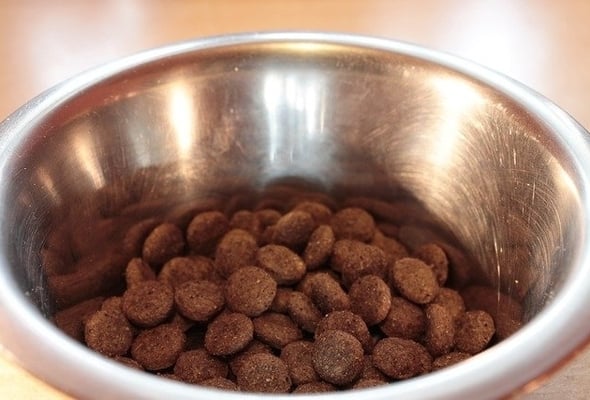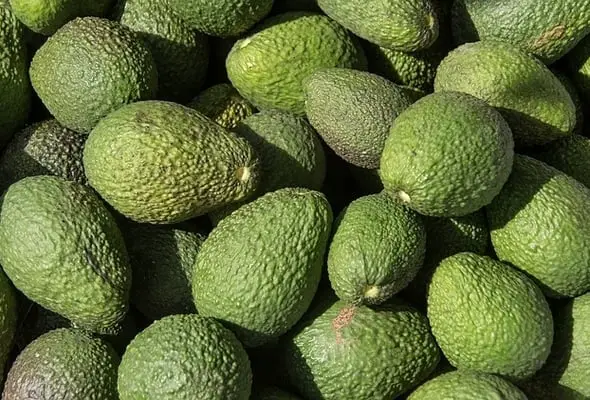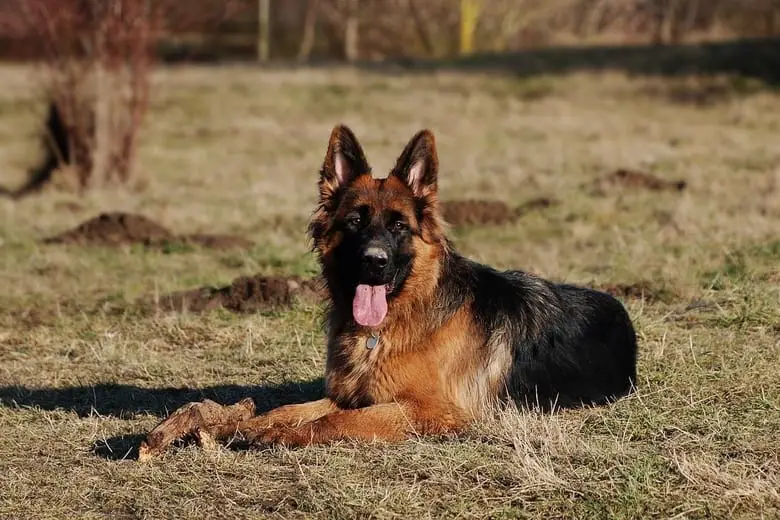German Shepherds are a well-respected breed by dog fans. When it comes to ownership, there are different handy methods to help them live as long as possible. Would you consider yourself educated in GSD information? How long do female German Shepherds live? Are they at risk for any genetic issues?
How Long Do Female German Shepherds Live?
Female German Shepherds have an estimated lifespan of 7-11 years. Though, this can be different for individual female German Shepherds based on their genetic makeup, breeding practices, and pre-existing health conditions.
Male and female German Shepherds have the same life expectancy, which is relatively short when compared to other dog breeds.
This article will cover topics about GSDs and how to increase their life expectancy, the healthiest foods to feed your GSD, foods to avoid, and explain why German Shepherds have a shorter life expectancy.
How To Increase Your German Shepherd’s Life Expectancy
Unfortunately, GSDs have a relatively short life expectancy.
There are methods that you can employ to possibly extend that time frame such as bringing your pet to the vet regularly for baseline blood work, keeping them up to date on required vaccines, and administering monthly flea and heartworm prevention.
Dental care is extremely important for GSDs, thankfully there are unlimited options to make sure your pet has healthy teeth and gums, including dental chews, dog-safe toothbrushes, toothpaste, and even water additives in your pet’s daily routine are highly recommended.
Most licensed veterinary clinics offer dental cleaning and extraction procedures and recommend that pets have them done regularly to ensure proper dental health.
German Shepherds are required to have a minimum of 90 minutes of exercise time daily to maintain a healthy weight, which is extremely important to their overall health. The internet is a fantastic resource and can help you put together a quality care plan to base your pet’s daily activities around.
Performing ‘snout to tail’ visual examinations regularly can help to ensure that your pet is not experiencing any pain, discomfort, or general issues. It is also recommended to incorporate daily mental enrichment into your GSDs routine, these exercises can increase your pet’s life expectancy.
Proper hydration and joint health are key factors as well, so ensure that your dog is not overdoing any physical exercises by providing clean water and a safe, cool place for them to rest and recover.
If you live in an area that deals with high temperatures, always check the heat index and concrete temperatures before letting your GSD outside. Dehydration and overheating can lead to death in some unfortunate cases, so stay vigilant.
The Healthiest Foods For Your German Shepherd
A healthy diet is one of the key components that ensure your GSD can live a long and healthy life. There are countless diet options available for purchase, but making a smart and informed decision can be difficult due to the wide variety of brands.

It is always best and recommended to consult a veterinary professional before making any big diet changes, as this could throw off the balance of your dog’s gastrointestinal tract, which can lead to nausea, loose stool, blood-tinged stool and vomit, and even severe lethargy for some dogs.
Brands like Hill’s Science Diet, Royal Canine, and Purina Pro Plan are highly recommended by veterinary professionals, and generally have the best and healthiest products available on the market.
As far as treats go, the brands mentioned above have a great selection available, and some fruits and veggies are safe for dogs to digest.
Always ensure that you do not feed your dog any fruits or vegetables that are toxic to them, you can reach out to your primary veterinarian to obtain a list of reliable information.
Foods To Avoid Giving Your German Shepherd
When researching healthy diets for your German Shepherd, it is essential to be aware of foods that are unsafe for them to avoid. While fruits and vegetables can be a great way to reward your GSD for good behavior, some examples are toxic to dogs.

Be sure to avoid cherries, grapes, raisins, chocolate, avocados, onions, garlic, dairy products, caffeine, and macadamia nuts. This is just a shortlist of examples, so we highly recommend seeking reliable information from professionals.
There are treats available on the market that can be unhealthy and unsafe for your GSD to consume. Products like bones, rawhide chews, and treats with high sodium content are not recommended to give your pet, as they can be damaging to your pet’s dental and overall health.
Reach out to your nearest veterinary professional for safer alternatives to these treats. Sweet potatoes can cause loose stool and vomiting in some dogs, so it is best to avoid any treats or food that have this ingredient if your pet has GI problems.
The grain-free diet has been a controversial subject in the veterinary medicine field, most veterinarians do not recommend this diet, as it has links to serious heart complications as pets age.
Weight gain is a common issue that most owners who feed their pets grain-free diets experience, which is not good for GSDs who are already struggling with any form of joint or health issues.
Peanut butter that is manufactured for humans contains a harmful ingredient for dogs, so it is best to buy this product from brands catered to canines.
Why Do German Shepherds Not Live Long?
Due to their large frame and genetic predispositions, German Shepherds have a lower than average life expectancy.
This breed has inherited medical conditions that make them more susceptible to serious health issues as they age, like bloat, arthritis, joint dysplasia, epilepsy as well as certain GI and degenerative diseases.
When owning a German Shepherd it is essential to have a great team of veterinary professionals at your disposal. Common cancers that affect this breed are osteosarcoma and hemangiosarcoma.
Routine blood work is essential so that you can be aware if your dog is beginning to show any signs or symptoms of these cancers. Blood work panels can also detect any blood clotting disorders or other forms of musculoskeletal and GI diseases.
Conclusion
We learned all about different factors that influence German Shepherds’ life expectancies in this article.
Important things to take away from this article are the toxic foods we discussed, general health issues that your GSD may experience as they age, and what diets promote long and healthy lifespans.
Always remember to contact your veterinarian before changing any of your dog’s diet plans to avoid experiencing severe medical issues.

